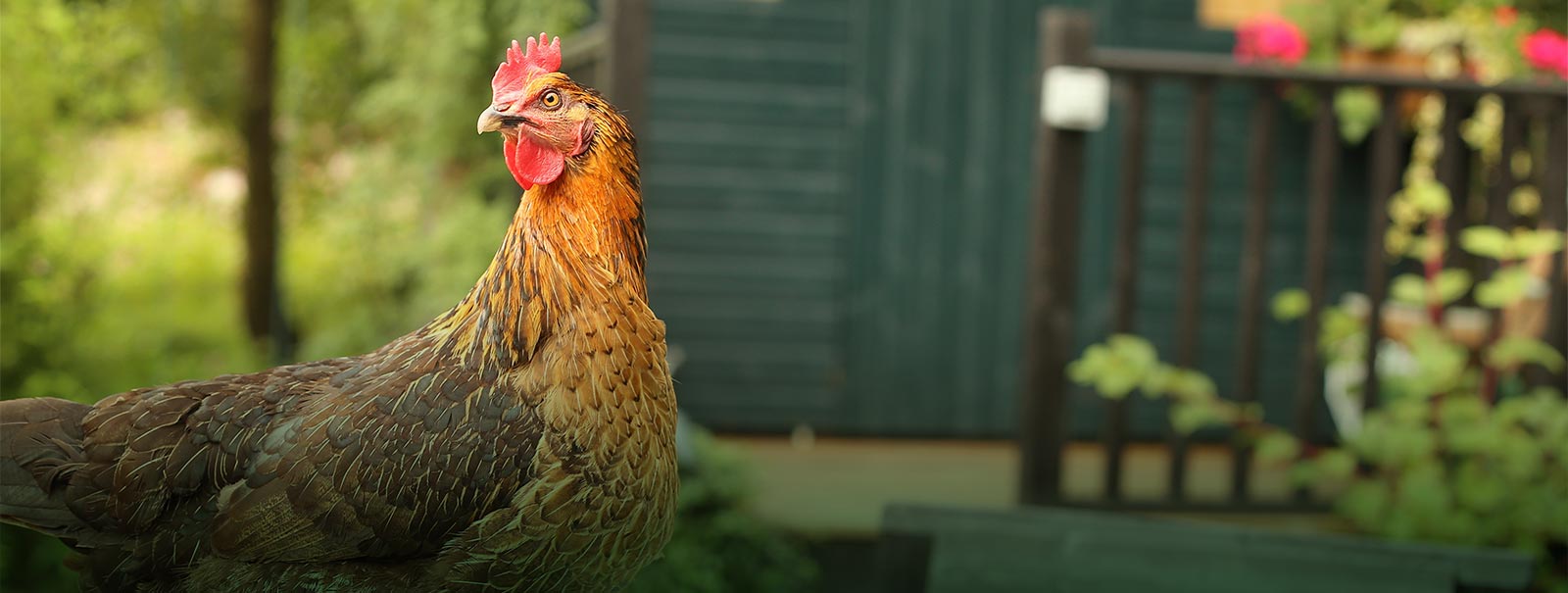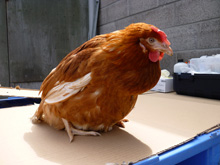
The advice hub Egg Peritonitis
The Chicken Vet is commonly asked about egg laying problems and chickens laying soft shelled eggs. Sometimes these queries are nothing to worry about as your chickens are just going through a normal process of coming into or going out of lay. However, there are occasionally difficulties and these birds may be experiencing an internal problem. These terms are used to describe birds whose oviduct is not functioning as they should be.
Usually the oviduct carries the yolk from the ovary to gradually form an egg over approximately 24 hours. During this time, the white, egg membranes and shell are formed around the yolk. In chickens with damage to their oviducts the egg does not form properly and the yolk is laid internally into the abdomen. These yolks can be absorbed over time but in most cases the chicken lays them internally faster than they can be absorbed resulting in a build-up within the abdomen. This enlarges the abdomen and causes the chicken to experience discomfort and often difficulty breathing. In order to help relieve the pressure on the abdomen the hen may adopt an upright penguin-like stance.

Some factors such as coming into lay, going out of lay and stress can cause the odd internally laid egg. However, severe oviduct damage can lead to permanent oviduct problems. This condition leads to a life of discomfort. Often the chicken will lose weight and have prominent breastbones. Deceivingly, due to the build-up of egg yolk in their abdomens, they appear to be roughly a normal weight.
These birds can be:
- Spayed (have the oviduct surgically removed)
- Have a hormonal implant inserted by a vet to stop ovulation
- Kept by a watchful and observant owner who knows the problem exists and makes veterinary contact if they suspect a brewing peritonitis
Unfortunately, in some cases the most humane option is to put the bird to sleep.
The picture shows a post mortem with an abdomen containing infected yolks.
The mass of egg yolk in the abdomen can provide a rich medium for bacteria such as E. coli to thrive and cause peritonitis. These birds become dull with hot swollen abdomens and in severe cases they will develop blood poisoning and go into shock and invariably die.
Treatment often involves using antibiotics which usually helps to treat infection, however, unless you are able to stop the bird laying internally, the peritonitis will usually return.
If you have a hen exhibiting these symptoms you may need to have it examined and treated.


